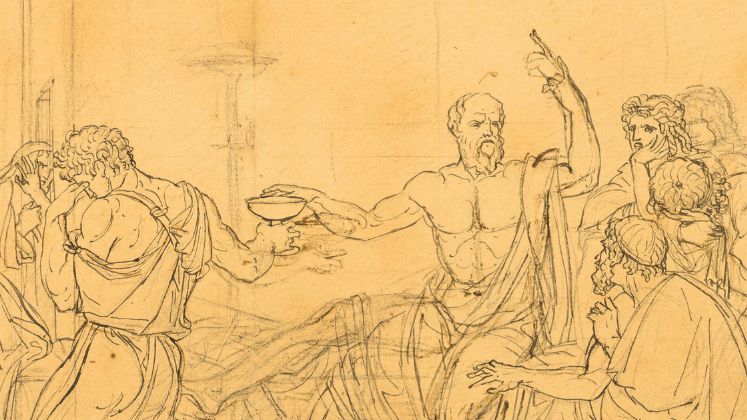Commenting on the trend for the politically motivated forensic scrutiny of the research records of academics, Till Bruckner argues that singling out individuals in this way has a chilling effect on academic freedom and distracts from efforts to address more important systemic issues in research integrity.
As somebody working to promote research integrity who has lived in several authoritarian countries, the growing weaponisation of research integrity against political opponents feels unpleasantly familiar. Increasingly, those seeking to intimidate or harass academics are singling them out for research integrity audits. There is a parallel to the way in which authoritarian governments use the tax police to intimidate or harass their critics.
Why the tax police? Let me explain. When an authoritarian government wants to cut ambitious businesspeople down to size, or bring independent media outlets or meddlesome human rights NGOs to heel, the first step is often to send in the tax police. Meticulously sifting through gigabytes of data covering multiple years of operations, inspectors are bound to find some minor violation of the complex tax code. Voila! The critics’ organisations are shut down, their assets seized, and guilty individuals thrown into jail. Even if meticulous tax audits find no clear-cut violation, the government can continue harassing opponents by filing a barrage of spurious legal cases that sully their reputation and remind everyone else to mind the red lines.
In short, you first choose the target, and then you go looking for the crime.
This is exactly what happened to Professor Claudine Gay, who recently resigned as Harvard’s president. She landed in the crosshairs of critics when, during Congressional testimony, she was widely seen to insufficiently condemn antisemitism on campus. With dreary predictability, the issue became embroiled in America’s culture wars. Those on the political right derided her as a ‘woke hire’ and called for her head, while voices on the left denounced “political theatrics advancing a White supremacist agenda“.
Subsequently, a conservative blog raised allegations of research misconduct. Its opening lines pulled no punches:
“Harvard president Claudine Gay has problems. Touted as the first black woman to run the nation’s most prestigious university… Gay has been accused of bullying colleagues, suppressing free speech, overseeing a racist admissions program, and, following the Hamas terror campaign against Israel, failing to stand up to rampant anti-Semitism on campus.”
It went on to discuss the research integrity violation:
“Though Gay does provide a reference to the original authors, she uses their verbatim language, with a few trivial synonym substitutions, without providing quotation marks [in her PhD dissertation]. This constitutes a clear violation of Harvard’s policy…”
Set on the case, the auditors swooped in. The right-wing Washington Free Beacon reported that it worked with nearly a dozen scholars to sift through her work and analyse potential cases of plagiarism. The Republican chair of a Congressional committee then requested internal emails from the university “concerning allegations of plagiarism”.
The infractions were real but minor. An internal investigation by Harvard concluded that these cases of “inadequate citation” did not amount to research misconduct, but nonetheless requested corrections to Gay’s work. A heated (legitimate) debate ensued about whether Harvard faculty were being held to lower standards than their students.
Accusing prominent academics of political heresy has a long history stretching back at least to the communist witch hunts of the McCarthy era. The charges levelled at Gay from the political right of “overseeing a racist admissions program” and “failing to stand up to rampant anti-Semitism” fall squarely into this tradition, as do left-wing attempts to smear academics who criticised the shortcomings of her scholarship as white supremacists.
What is new, however, is the weaponisation of research integrity in these battles. In the 1950s, it never occurred to McCarthy to audit his targets’ ethics approval documentation. Today, this has become routine.
Thus, when French scientist Didier Raoult during spring 2020 claimed that hydroxychloroquine was effective for treating Covid patients, as is common in the wake of major new scientific claims, many academics carefully scrutinised the methodology of his study. However, hydroxychloroquine was also a political red flag because President Trump was loudly promoting the unproven treatment at the same time. This put research integrity auditors onto Raoult’s case. They scrutinised his entire portfolio of publications and found numerous serious violations of research integrity standards at the institute he ran, including failures to secure ethics approval for hundreds of studies.
What is the problem? I see three areas of concern:
First and foremost, as authoritarian governments have long known, responding to criticism by digging for dirt has a chilling effect on academic freedom and freedom of speech. My guess is that very few senior academics can be 100% confident that every single research project and publication that they were ever involved in over the course of decades consistently and fully met the exacting research integrity standards that were applied to Gay’s work. When virtually everyone might be guilty, nobody is safe. If saying or publishing anything that could offend anybody can trigger a forensic audit and possible public and professional disgrace, the only safe course of action is to avoid fields of study, topics and conclusions that are ‘dangerous’.
Second, fear of the research integrity police will lead to publication bias. Currently, this chiefly applies to culture war issues like race, sex and gender, where publishing ‘problematic’ findings routinely draws hostile fire from the political left. However, more than one player can play the persecution game. Powerful companies too have a long history of actively trying to shape the narrative and science around their products.
In future, academics who find evidence that a highly profitable drug has dangerous side effects might think twice about publishing their research, lest the pharma company involved goes through their entire past publication record with a research integrity toothcomb. Similarly, if there are dozens of conflicting studies of a product’s safety, a company could selectively audit those whose conclusions it dislikes, and then try to get those retracted from the scientific record (Such selective purges are already underway for studies whose conclusions are deemed to be racist or sexist).
Third, focusing research integrity efforts on targets selected by partisan actors or social media mobs is unlikely to improve science. True, research integrity sleuths have succeeded in uncovering serious violations committed under Raoult’s watch. However, this focus on one offender’s sins distracts from the far more alarming fact that hundreds of blatant violations went completely undetected over many years.
A more productive approach would be to systematically assess how widespread violations are across an entire field, determine which types of violations cause the greatest harm, sanction the worst offenders, and then build systems to prevent it from happening again. In other words, rather than conducting isolated hit-and-run jobs, we should be pursuing what auditors call a risk-based approach.
Taking research integrity seriously means focusing on and addressing the most serious research integrity violations. And that rarely happens.
Take my own field of research, clinical trial transparency. Currently, American researchers neglect to publish the results of over a third of all clinical trials that they run. Over past twenty years, probably over 100,000 studies worldwide have remained unpublished. It is well documented that the resulting gaps and distortions in the medical evidence base significantly harm patients. Non-publication of clinical trial results is also a clear violation of medical research ethics.
Furthermore, these violations are easy to identify. Numerous studies and datasets list hundreds of trials that have remained unpublished. Nonetheless, to the best of my knowledge, only one ethics complaint has ever been filed over an unreported trial result, and the UK is so far the only country in the world to systematically tackle the problem.
Meanwhile, following right-wing celebrations of Gay’s downfall, the important questions her case raised about where exactly institutions draw research integrity red lines and how they respond to complaints will quickly fade into the background. Gay herself is returning to her old job as a Harvard professor. A few references have been added to her publications, but no, science has not improved.
If we want to improve research integrity, first choosing a specific person to target and then looking for the crime is the wrong approach.
The content generated on this blog is for information purposes only. This Article gives the views and opinions of the authors and does not reflect the views and opinions of the Impact of Social Science blog (the blog), nor of the London School of Economics and Political Science. Please review our comments policy if you have any concerns on posting a comment below.
Image Credit: Skylines on Shutterstock.








I commend your work in clinical trial transparency.
With all due respect, what’s happened to Gay is exactly how journalism works in a free society.
Journalists hold powerful figures to account by exposing misconduct, whether these powers are politicians, corporations or Ivy League presidents.
Political persecution happens to innocent people. Complaining of vendettas or persecution when one is guilty is what corrupt officials do.
It’s alarming this is how it had to come out. Academics should take note that the public alarm is also felt on the left.
Identifying plagiarism in more than half of a prominent academic’s publications doesn’t impede academic freedom unless academics feel free to plagiarize.
Your argument perfectly exemplifies systemic issues in research integrity: plagiarism passes through peer-review, academic hiring committees and then hand-waved by academics once exposed because research integrity is so much worse than “mere” plagiarism.
Most of the public is unaware of the serious need for research reform as you highlight here. Our research bodies have not done enough or moved fast enough to correct dangerous, systemic research issues. Hopefully blog posts like this will help raise awareness, although you buried the lede.
Our knowledge producers are powerful institutions. The knowledge produced across physical science, social science and humanities has been put through a good audit over the past decade, out of which the academies will hopefully emerge worthy of their status.
We desperately need them to be worthy of their status.
If improprieties surface, academia needs to take responsibility and correct course expeditiously instead of making arguments of persecution, false equivalence and false dichotomy.
Isn’t scapegoating muckrakers what authoritarian governments do?
P.S. I agree that what Gay did is not, in itself, a morally devastating offense. Yet she (and it’s now surfacing that many others) violated academia’s own policy for which students are regularly expelled and/or with permanent marks on their record which can impact their entire future.
Most people aren’t in a position to change the system and just do what they can, which is often dealing with individual cases of which they have knowledge. Please get back in touch when you have changed the system to make such efforts unnecessary. Your article is a little light on how you propose to effect real change.
I’m not sure that Raoult is a good example, and that maybe speaks to the strength of your argument. What do you make of Didier Raoult’s unauthorised tuberculosis treatment trial with dangerous drug combinations on vulnerable subjects unable to give informed consent? Personally, I would say he had far too much academic freedom and I thank the whistleblowers who brought his transgressions to light, while the authorities *still* do nothing.
Disclosure: I volunteer at PubPeer.com (so see a lot of rubbish go by) and Didier Raoult has filed a police report against me.
Boris – I too thank the whistleblowers who brought Raoult’s transgressions to light. These were major violations of research integrity with potential direct consequences for people’s health, and people should not turn a blind eye to those.
My blog argued that we as a community should be taking a risk-based approach to identifying and acting upon research integrity problems. I hope it will stimulate a debate about how best to do that.
A far more tricky problem is how we should react when a politically motivated “research integrity audit” flags very minor problems, as happened with Gay. A good analogy is the cop who only stops and searches black men. When he finds a bit of weed on some of them, should the justice system take action (it might be a very minor offense but it’s clearly illegal, and other people get punished for that offense when they get caught elsewhere)? If the people stopped by that cop get a fine, it’s unfair because they de facto wouldn’t have gotten a fine if their skin colour had been different, and the vast majority of people smoking weed never get caught. But if they are let off, it’s unfair towards other people who did receive a fine for the same minor offense.
There are no easy answers here, but now we’ve had billionnaire Bill Ackerman announce the launch of a sweeping “research integrity audit” effort targeted at MIT faculty for political reasons, we urgently need a debate on this.
Anyone willing to invest a million dollars can use this playbook to target any academic group they dislike, and thereby deplatform a significant number of its members and undermine public and scientific debate. For example, someone could decide to use it to selectively smear and remove scholars who support either Israel or Palestine, or scholars who support or oppose medical interventions for minors who identify as transgender, or those who support or oppose US aid to Ukraine. (Note the potential for powerful state actors, as well as commercial actors, to play this game.)
I don’t have any answers. But we really need a discussion about these difficult problems and how to navigate them.